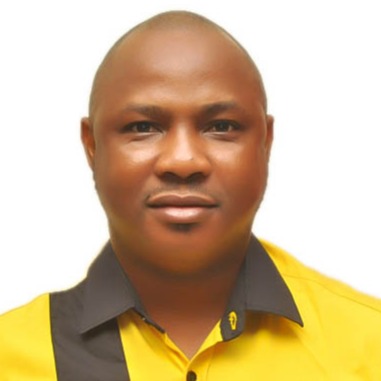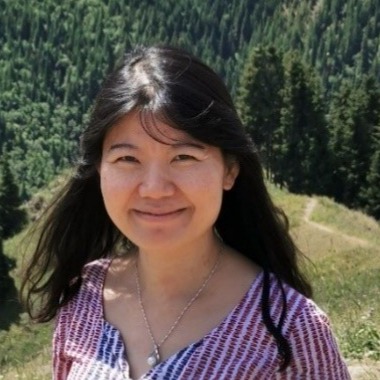Transitioning to Clean Cooking Webinar Series: Session 4
To date, most initiatives to accelerate uptake of clean energy access technologies have focused on financial incentives and technical improvements. While these are important, sustained adoption by end-users requires profound behavioral change which is influenced by societal factors, individual biases, and mindsets. To understand how to shift these behavioral patterns, World Bank’s Mind, Behavior, and Development (eMBeD) unit partnered with Ci-Dev and ESMAP to carry-out a multi-country engagement examining the bottlenecks to adoption and potential solutions through the lens of behavioral science in six SSA countries that had World Bank energy access projects either ongoing or in preparation.
Co-hosted by the World Bank’s Poverty & Equity Global Practice, Climate Group, and Energy Global Practice, this session will present results from behavioral diagnostics in six countries, examining the uptake and/or sustained use of improved cookstoves (Ghana, Madagascar, Rwanda) and solar home systems (Ethiopia, Senegal, Uganda) among low-income households.
The findings to be presented in this session resulted from a collaboration between the World Bank’s Mind, Behavior, and Development unit (eMBeD), Carbon Initiative for Development (Ci-Dev), and Energy Sector Management Assistance Program (ESMAP).
Over the course of 12 months, partly during COVID-19, eMBeD collected extensive qualitative data - including 131 household interviews, 16 focus groups with 148 participants, and 23 marketplace observations -, which was then complemented with analysis of existing survey data. Bringing together findings from the six countries, this webinar will outline households’ decision-making journey towards uptake and sustained use of SHS and ICSs and present key findings that provide deep insights on individual, social and cultural factors that can drive or impede adoption at the different steps of the user journey. Moving forward the team will conduct randomized evaluations in two countries to test behavioral solutions to minimize or overcome the barriers found to increase cost-effectiveness of the World Bank lending projects to promote better living standards for low-income households and improve climate outcomes.
Recording
The recording of the session can be accessed here
Agenda
Moderator
Matthew David King (Fund Manager, Ci-Dev, Climate Group, World Bank)
Introduction and Opening Remarks
- Heather Adair-Rohani (Technical Lead on Energy and Health, WHO)
- Pierella Paci (Practice Manager, Poverty & Equity Global Practice, World Bank)
Presentation: Findings from Behavioral Diagnostics in Six Sub-Saharan African Countries
- Samantha De Martino (Economist, eMBeD, Poverty & Equity Global Practice, World Bank)
- Joana Sousa Lourenço (Behavioral Scientist, eMBeD, Poverty & Equity Global Practice, World Bank)
Panel Discussion
- Yabei Zhang (Senior Energy Specialist, Infrastructure Energy Global Programs, World Bank)
- Julie Ipe (Senior Director for Market Strengthening, Clean Cooking Alliance)
- Bernard Olajide (Marketing Manager for Green Light Planet, West Africa)
Q&A
Closing Remarks
Pierella Paci (Practice Manager, Poverty & Equity Global Practice, World Bank)
Confirmed Speakers
Matthew David King (Fund Manager, Carbon Initiative for Development) |
|
Heather Adair-Rohani, Technical Lead on Energy and Health, WHO Ms. Heather Adair-Rohani leads the work on energy and health at the World Health Organization Headquarters. She has led the establishment of the Health and Energy Platform of Action, and the High-level Coalition on Health and Energy. Ms. Adair-Rohani co-led the coordination and development of the WHO guidelines for indoor air quality: household fuel combustion and is currently overseeing the work to support countries in the implementation of these Guidelines through the Clean Household Energy Solutions Toolkit. She also actively participates and represents WHO at various global initiatives focused on health, air pollution and energy like UN Energy, Sustainable Energy for All, Inter-Agency Expert Group on Sustainable Development Goal Indicators, and the Global Strategy for Women, Children and Adolescent Health. |  |
Pierella Paci, Practice Manager, Poverty and Equity Global Practice, World Bank Ms. Pierella Paci is a Practice Manager, Poverty and Equity Global Practice. In her 15-year career at the World Bank Group, Ms. Paci has held technical, operational and management positions and she has been instrumental in developing the corporate agenda on poverty and inequality jobs and gender. Previously she had been Associate Professor of Economics at City University (London) and Assistant Professor of Economics at the University of Sussex (UK). She holds a PhD in Economics from the Victoria University of Manchester (UK) and has written extensively in the areas of inequality and poverty, labor, gender and human development. |
|
Samantha De Martino, Economist, Poverty and Equity Global Practice, World Bank Ms. Samantha De Martino is an Economist in the World Bank’s Poverty and Equity Global Practice with the Mind, Behavior, and Development Unit (eMBeD). She leads teams to create evidence on “what works” in behavioral policy design and implementation, especially in the thematic areas of climate change, clean energy, environment, skills and youth employment. She also leads work in measurement; specifically, developing innovative public goods tools which leverage disruptive technology using insights from neuroscience, psychology, and applied microeconomics for the advancement of behavioral policy implementation. Over her career, she’s worked with client countries to provide technical assistance in Africa, Latin America, East Asia, Eastern Europe and Central Asia. She holds a master's degree from Johns Hopkins University and PhD in Economics from the University of Sussex. |
|
|
Joana Sousa Lourenço, Behavioral Scientist, Mind Behavior and Development Unit (eMBeD), Poverty & Equity Global Practice, World Bank Ms. Joana Sousa Lourenço is a Behavioral Scientist in the World Bank’s Poverty and Equity Global Practice with the Mind, Behavior, and Development Unit (eMBeD). Ms. Lourenço's work includes designing and evaluating behavioral interventions across various areas, such as clean energy, environment, employment, health, and decision-making of policy professionals. Her work relies on quantitative and qualitative research tools, and She has worked with client countries to provide technical assistance in Africa, Latin America, and Asia. Previously, she worked at the European Commission’s Competence Centre on Behavioural Insights, and she holds a MSc in Experimental Psychology from Minho University (PT) and a PhD in Cognitive Psychology from The University of Warwick (UK). |  |
Yabei Zhang, Senior Energy Specialist, Infrastructure Energy Global Programs, World Bank Ms. Yabei Zhang is a Senior Energy Specialist, leading the Clean Cooking Fund. She manages the global knowledge products, engages and coordinates with internal and external partners, and supports clean cooking programs development and implementation in Africa and South Asia. She has over 15 years of experience in household energy, energy efficiency, renewable energy, climate change, environment health, and urban development. Before she joined ESMAP in 2017, She had managed various energy projects in East Asia and Pacific (EAP) and Europe and Central Asia (ECA) regions. She holds a PhD in Economics from the University of Maryland and a Master in City Planning from Massachusetts Institute of Technology. |
|
Julie Ipe, Senior Director for Market Strenghtening, Clean Cooking Alliance Ms. Julie Ipe co-leads CCA's market development program, with a focus on activities related to behavior change, gender, policy, and market intelligence. She previously oversaw CCA’s behavior change communication program, which included consumer-facing mass media and community-based communication campaigns that reached over 40 million people. Julie came to CCA from the Energy and Climate team at the United Nations Foundation. Earlier in her career, she worked as a consultant specialized in NGO management and strategy. |
|
Bernard Olajide, Marketing Manager for Green Light Planet, West Africa Mr. Bernard Olajide drives business growth through strategic marketing initiatives in the West African region at Greenlight Planet, which provides solar lamps and solar home systems products and is a member of the Global Association for the Off-Grid Solar Energy Industry (GOGLA). He specializes in consumer insights and perception, brand and marketing strategy, integrated Go-To-Market, demand generation campaigns and of recent, social media management and public relations. A key success factor to his accomplishments is the coordination between the sales and marketing teams through effective collaboration. His core strengths are development and executions of campaigns, which had led to the growth and profitability of the business in Nigeria. He recently graduated from the Greenlight Leadership Foundation Program, an AIESEC Alumnus and currently studying for his MBA at Edinburgh Business School. |  |
Useful Resources & Links





